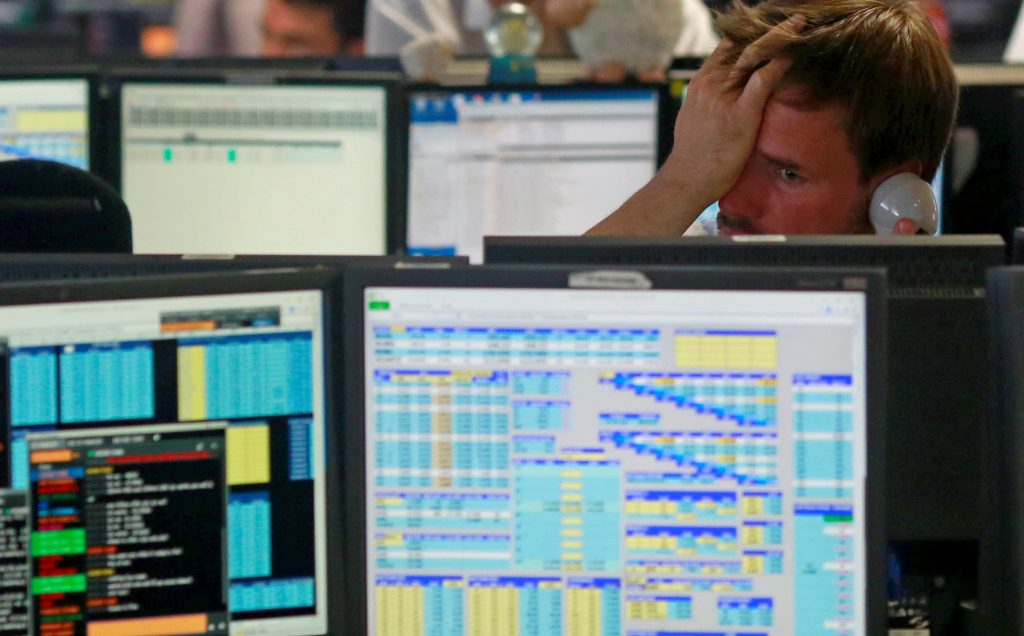
OXFORD, England — Shocker, a word you’ll hear rarely from someone who, like myself, sizes up the world probabilistically. But shocker is the verdict on the Brexit vote, for at least four reasons.
First, of course, are the political implications. As economist Justin Wolfers put it late last night on Twitter, though overstating slightly: “Economists favor more integration, not for the economic gains, but because it fosters peace, which is more valuable.”
Time for real talk. Economists favor more integration, not for the economic gains, but because it fosters peace, which is more valuable.
— Justin Wolfers (@JustinWolfers) June 24, 2016
Second, these are millions upon millions of people who were voting against their pocketbooks. And they knew it. That’s because, economically, the results were unusually predictable. Every time the odds of a Brexit “Leave” vote had gone up, the value of the British pound had gone down. This might not be so bad if the UK were an export-based economy. A cheaper pound would mean cheaper prices on British goods and services. What the country loses in buying power it might more than make up for in jobs. But as Matt Yglesias tweeted late last night:
https://twitter.com/mattyglesias/status/746177997317804033
And Wolfers again:
Upside: Britain is on sale. Everything, 10-15% off. Steak and kidney pies for everyone.
— Justin Wolfers (@JustinWolfers) June 24, 2016
Everyone outside Britain, he means — like me and my wife, leaving Oxford on Monday after 10 weeks here. I got an email from a vendor this morning telling me where to send a “cheque” for the 65 pound-price we agreed upon yesterday. In the ensuing 24 hours, I’ve saved $5. Maybe I’ll stall till tomorrow. Oh wait: the pound could shoot back up! When should I pay? It’s a question every importer from Britain will now be asking — more pressingly than in years, if not decades. And those $5 my vendor loses will be $5 less to spend on what will now be increasingly expensive goods and services from abroad. In the time we’ve been here, numerous Brits have told us they’d like to go to America because it’s so much cheaper. Did they vote for Brexit too?
After the assassination of the aggressively humane Labour MP Jo Cox, would aggressively civil England actually vote for the forces of aggression? The answer is that it did so, aggressively.The third shock is more personal: my apparent over-reliance on the prediction markets, and on economists like Justin Wolfers who do as well. The two of us conducted a video chat more than five years ago in which we extolled the virtues of markets, mainly with respect to sports betting, but also in politics. And I have reported on political markets for the NewsHour many times, as recently as February. Last night, Justin reproduced this tweet:
“To Justin: I think you need an explanation on gambling odds. These markets are not full markets where people can bet a lot of money. They are not as informative as you believe they are.”
Justin’s reply: “I love me a good mansplainer. Because honestly, I just didn’t realize.”
READ MORE: Britain votes to leave the European Union, Prime Minister David Cameron resigns
In the defense of the market-dependent, yesterday’s Brexit vote drew plenty of money: an estimated £50 million pounds or more on one British prediction market alone. But what we failed to realize — or more honestly, failed to remember — is that odds are probabilities, not facts. At 11 pm last night here in England, I tweeted:
Brexit polls now closed here in UK. Betting mkts put the odds of Remain win at 85% likelihood. They were down to 60% before Jo Cox killing.
— Paul Solman (@paulsolman) June 23, 2016
Three hours later:
Most dramatic swings I've ever seen on the prediction mkts: Brexit from 12% to 54% when this tweet began now back down to 40% as I finish it
— Paul Solman (@paulsolman) June 24, 2016
I stayed up until the odds had again reversed and the “Leave” side, long after its nativist champion Nigel Farage had conceded defeat, was up, 70 percent-30 percent.
READ MORE: Column: In the wake of Brexit, will the EU finally turn away from austerity?
The point is, even at 11pm, with the odds at 85 percent for “Remain,” there was still roughly one chance in six that the UK would vote to leave. And by definition, such an event will occur, on average, one-sixth of the time. On the prediction markets, those odds should lead to the right call five times out of six, on average. And that can lull those who monitor the markets into a false sense of complacency, as it did me with Brexit. I didn’t forget about that sixth time. But I dismissed it. I’m shocked that I did.
A victory it was — for those who reject the political and economic policies of recent years.The fourth shock should perhaps not come as one, as assiduously as we here at Making Sen$e having been covering economic inequality over the years. It’s the gulf (or abyss) between elites and workers in countries like the US and the UK. That would help explain the confidence of the prediction markets. Who bets money on elections if not, disproportionately, those who already have enough? With which side was the Remain side identified, if not the Establishment? But after the assassination of the aggressively humane Labour MP Jo Cox, would aggressively civil England actually vote for the forces of aggression? The answer is that it did so, aggressively.
Let’s end with the final summing up Tweet from Wolfers, in ALL CAPS:
BRITAIN SCORES OWN GOAL. DECLARES 0-1 VICTORY.
— Justin Wolfers (@JustinWolfers) June 24, 2016
A victory it was — for those who reject the political and economic policies of recent years. Wolfers and most other economists think the victory Pyrrhic, at best.
ncG1vNJzZmivp6x7sa7SZ6arn1%2Bjsri%2Fx6isq2eVmLyvu8yyZpuqla22tXnFqKyrZaKarrS7zaxkoqxdmLyusdJmmKxlkWLAqbvCpA%3D%3D